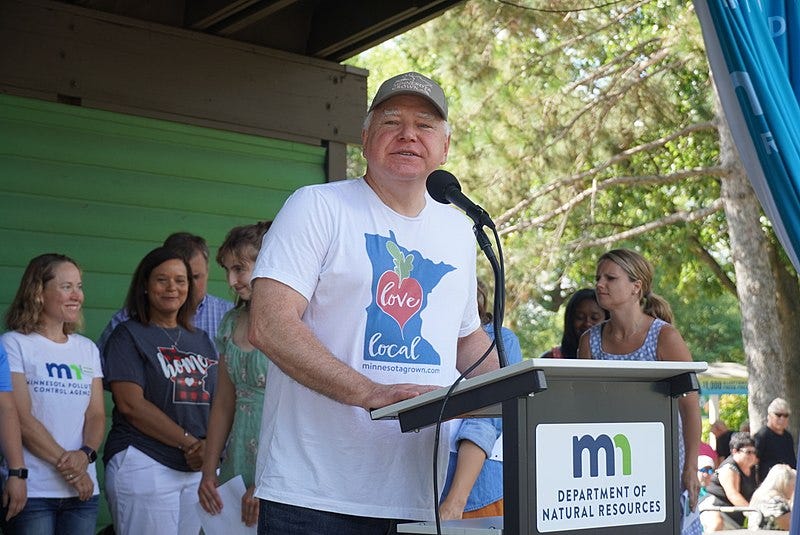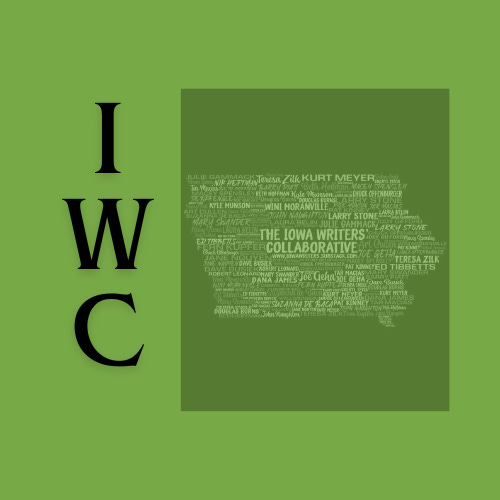What makes Tim Walz different from every other nominee for president and VP over the past 50 years?
Tim Walz brings something to his candidacy for vice-president that no candidate for vice-president – or president – has had within the past half-century.
Tim Walz spent his summers while growing up working on the family farm in north-central Nebraska.
Yes, it can be hard work. But hard work teaches young people things that are worth learning. Among other things, it teaches the value of hard work.
It teaches the value of taking responsibility for your own productivity.
Kids who work on family farms learn to be respectful and resourceful. They learn how to solve problems. They learn to look for creative solutions.
They learn that you have to use the tools in the shed as well as the brain in your head to get a job done.
There was a time when many of the candidates for president and vice president came off the farm and had been exposed to these valuable attributes in their youth.
The population of the U.S. was 95 percent rural at the country's founding. Just 5 percent of the populace lived in cities. It has grown slowly but steadily ever since.
By 1850, the rural population had declined to 85 percent.
By 1900, it was down to 60 percent, a more rapid transition fueled by the Industrial Revolution beginning in the late 19th century.
By 1950, there had been another big drop in the rural population to 40 percent. This time, it was fueled by mechanized travel, automobiles, roads, and airplanes, making it possible to get to any location in the country in a matter of hours instead of weeks.
Still, the decline would continue – to 25 percent in 1970 and 20 percent today.
Tim Walz’s agricultural background would not have stood out as unusual among presidential and vice presidential nominees until around the 1970s – 50 years ago.
During the past 50 years, the farm backgrounds of nominees for president and vice president have been mostly absent, although there was an exception, or near-exception, or two.
Bob Dole’s father ran a creamery in a small Midwestern town, Russell, Kansas.
Jimmy Carter’s ancestors in Georgia were cotton farmers, but his father ran a general store. Still, his father was a farmland investor and gave young Jimmy an acre of land, where he began growing, packaging, and selling peanuts. After he and Rosalynn were married and had three sons, Jimmy set out to expand the peanut business but his first-year harvest was a disaster due to drought. The Carters went to work, learned new skill sets, including accounting and ag management, and began building a successful peanut business for the long term.
Carter’s presidency was not terribly successful. But it was not because he had not built a strong skill set. It just was not a complete skill set. Among other things, he was not a strong communicator.
After Tim Walz’s debut speech in Philadelphia on Tuesday night, it appears he has that part of the job nailed.
A NOTE TO MY READERS: I write this column, Arnold Garson: Second Thoughts, as a member of the Iowa Writers’ Collaborative. You can subscribe for free. However, if you enjoy my work, please consider showing your support by becoming a paid subscriber at the level that feels right for you. The cost can be less than $2 per column.




Thanks for this upbeat article! I really think his Midwestern and rural roots give great balance to the ticket. Plus he has experience both in Congress and as a governor. Now if only he drank coffee instead of Mt. Dew...
Thank you for this great analysis. I hope you're right and this will bring the US to a more appeased future.
Growing up on a farm is not a guaranty of being sensible (I've seen crazy people growing up on an organic farm), but I agree that this will bring a more "down to earth" aspect to our politics.